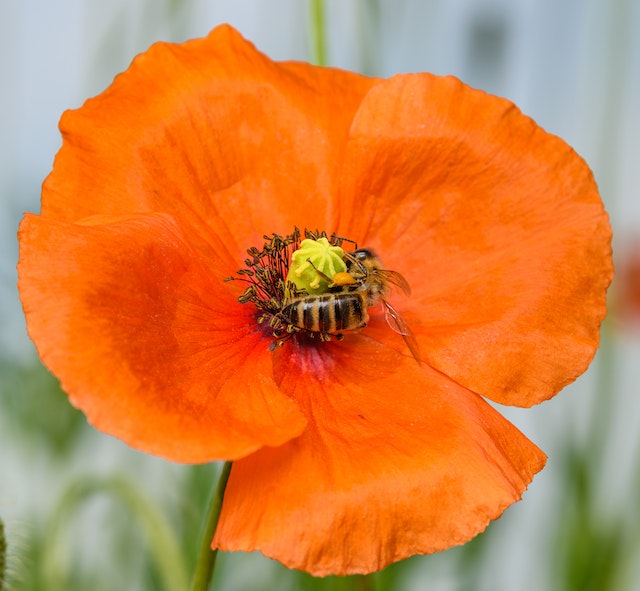Botanical Description:
Scientific Name: Eschscholzia californica
Family: Papaveraceae
Common Names: California Poppy, Golden Poppy
Description: California Poppy is a flowering plant native to California but is found in various regions. It is an annual or perennial herb with finely divided, fern-like leaves. The plant forms mounds of blue-green foliage and produces distinctive orange to yellow cup-shaped flowers. The flowers close at night or in cold, cloudy weather. The plant is known for its sedative properties and has been used traditionally by Native American communities for its calming effects.
Disclaimer:
This Materia Medica is provided for informational purposes only and should not replace professional medical advice. Please consult with a qualified healthcare practitioner or herbalist before using any herbal remedies.
Therapeutic Actions:
- Mild Sedative: California Poppy is valued for its mild sedative properties, promoting relaxation and stress relief.
- Analgesic: It may have mild analgesic effects, potentially helping with pain relief.
- Antispasmodic: California Poppy is used as an antispasmodic, particularly for conditions involving muscle tension.
- Anxiolytic: It has anxiolytic properties, offering support for anxiety and nervousness.
- Mild Hypnotic: In some traditional uses, California Poppy is considered a mild hypnotic, aiding in sleep.
Constituents:
- Alkaloids: California Poppy contains alkaloids, including rhoeadine and protopine, contributing to its sedative effects.
- Flavonoids: Flavonoids in the plant may contribute to its antioxidant properties.
- Carotenoids: Carotenoids, responsible for the vibrant color of the flowers, have potential health benefits.
Traditional Uses:
- Sleep Support: California Poppy is traditionally used to support healthy sleep patterns and address insomnia.
- Anxiety and Nervous Tension: It is employed for its calming effects, helping to alleviate anxiety and nervous tension.
- Pain Relief: California Poppy may be used for mild pain relief, particularly for conditions involving tension or spasms.
- Nervous System Support: Traditionally, it is used to support the overall health of the nervous system.
- Relaxation: California Poppy is valued for its ability to induce a state of relaxation without causing drowsiness.
Dosage and Preparation:
- Tincture: California Poppy tinctures are available. Follow product recommendations or herbalist advice for dosage.
- Tea/Infusion: Prepare a tea by steeping 1-2 teaspoons of dried California Poppy flowers in hot water for 10-15 minutes. Drink in the evening for relaxation.
- Capsules: Capsules containing California Poppy extract are available. Follow product recommendations for dosage.
- Topical Applications: California Poppy-infused oils or salves can be applied topically for muscle tension or relaxation.
Cautions and Considerations:
- Sedative Effects: California Poppy has sedative effects, and excessive use may cause drowsiness. Avoid operating heavy machinery or driving after consumption.
- Pregnancy and Lactation: Pregnant and lactating individuals should avoid California Poppy due to potential effects on the uterus.
- Individual Sensitivity: Some individuals may be more sensitive to the sedative effects. Start with a low dose to assess individual response.
- Interaction with Medications: California Poppy may interact with certain medications. Consult with a healthcare provider if taking medications.
Conclusion:
California Poppy, with its beautiful flowers and calming properties, has a longstanding tradition of use for relaxation and sleep support. As with any herbal remedy, individual responses may vary, and caution is advised, especially regarding sedative effects. Consulting with a qualified healthcare practitioner or herbalist ensures safe and appropriate use, taking into consideration individual health conditions, medications, and potential contraindications.





